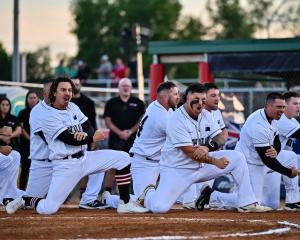
Members of the New Zealand national team of men and women ski racers basically have to cover all their own expenses.
Some of the top performers have different levels of sponsorship covering part of their equipment, but they still have to come up with their own funds for coaching and travelling.
Snow Sports NZ alpine ski racing manager James Lazor said each of the international ski racers had to raise at least $40,000 to $50,000 each year to cover their expenses. Many of the international athletes from other countries spend more than $150,000 a year, he said.
"We really do need a couple of major cash sponsors to help our talented athletes succeed on an international level," he said.
"They even have to pay for their coach out of their own money. But at least they have invaluable support from partners such as Millbrook Resort, Pulse Fitness and the Mt Hutt and Coronet Peak skifields, who all make facilities available for the New Zealand national team to train at," Mr Lazor said.
Former Winter Olympian, Fiona Stevens, who still competes in ski racing at Masters Race level, works as chief executive for Snowvision, a charitable trust providing support and funding for snowsports from youth development level through to top athletes. She said there was an obvious connection between funding and results.
"When even our top skiers like Tim Cafe and Ben Griffin have to take on coaching jobs to fund their competitions, they will inevitably have less time for their training than their international counterparts, which is bound to affect their results," Ms Stevens said.
A visit to Coronet Peak on any training day for the international race teams shows a veritable army of support staff and technicians for the international teams, whereas the local top ski racers share one coach, who fills several job functions for the team.
"These international teams train here because we have world-class facilities. We also have the talent, so in my opinion there is no reason why we should not have New Zealanders at the very top of the game - if they had the right support and funding," Ms Stevens said.
Sport and Recreation New Zealand (Sparc) funds top level athletes through its High Performance Sport development programme. But alpine skiing is not among the disciplines chosen for such funding, which has to date required the sport to already have demonstrated results among the world elite.
"While some of our most accomplished skiers might be among the top 2% of athletes in the field, alpine ski racing is such a huge sport internationally that it might just mean they are among the 250 highest rated skiers, rather than in the top 10," Mr Lazor said.
"Sparc is doing a review of its funding structure, and I hope this will mean our national alpine team can get support as well.
"In the meantime, my biggest project is to find sponsors so we can send a team off to compete at the world cup circuit at the next northern hemisphere winter," he said.
• Snowvision has established a capital fund with the aim of supporting both young up-an-coming skiers and top snowsports athletes.
Ms Stevens said the aim was to create a $5 million fund to support skiers and snowboarders for decades to come.
One of the fundraising initiatives under the organisation's "Black on White" umbrella is training camps, where hundreds of recreational skiers have been able to get top-level tuition from established skiers and snowboarders.
"This month, we held camps in Queenstown and Wanaka, where skiers got tuition from Olympians Tim Cafe and Ben Griffin, which is an opportunity that is hard to find anywhere in the world," she said.












